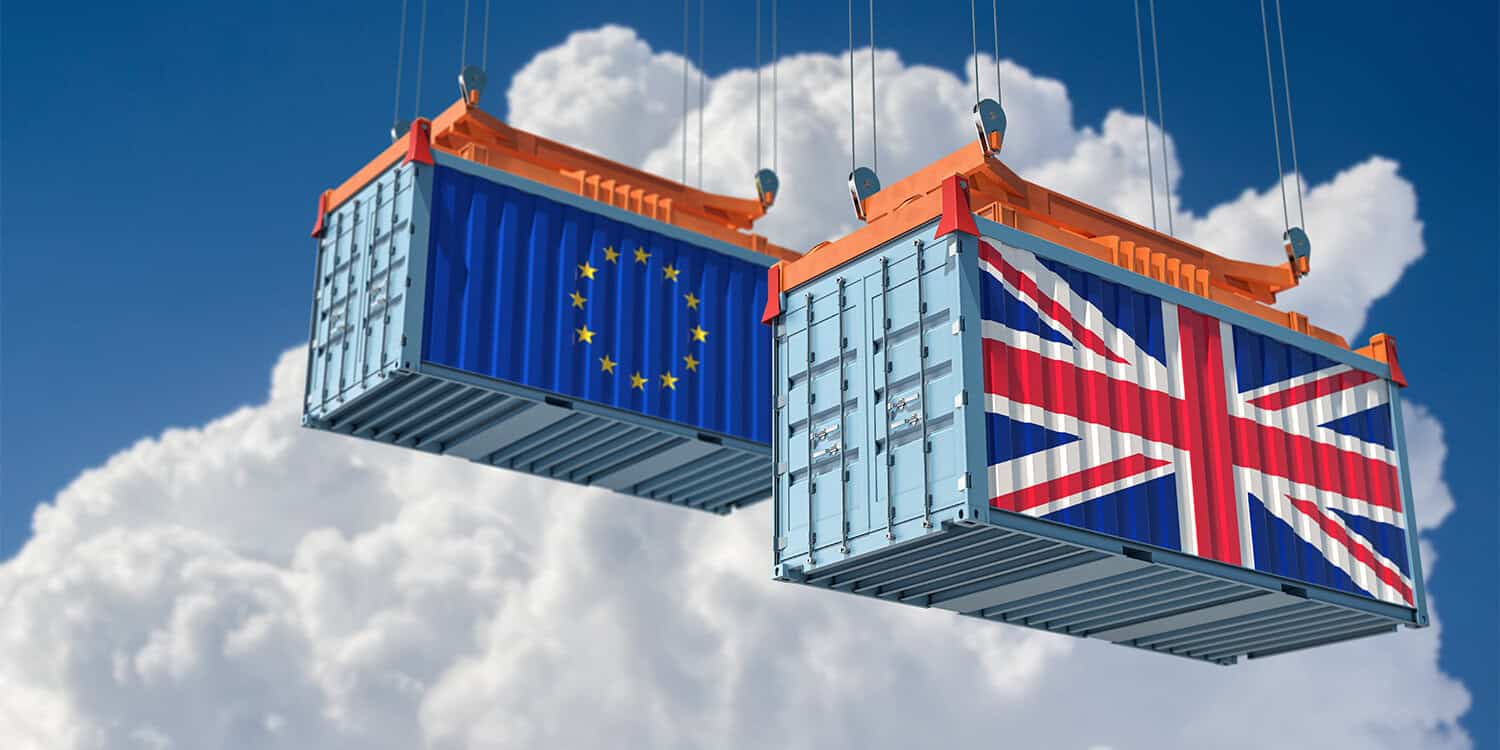Table of Contents
On 30 April 2024, the UK government introduced new post-Brexit import fees for businesses bringing certain goods into the country from the EU. These changes could pose several financial and logistical problems for the UK’s SMEs.
Keep reading to find out what the new import rules are and the impact they could have on your business.
What are the new post-Brexit import fees?
Before getting into its implications, let’s first establish what’s changed regarding these new import fees. Going forward, UK businesses passing medium to high-risk plant and animal products through the border could be liable to pay a common user charge of up to £145 per import (for a maximum of five commodities).
This is a new fee that applies to the commercial movement of the above category of goods through the border. It concerns products that are eligible for sanitary and phytosanitary (SPS) checks at a government-run border control post in England, both entering and leaving Great Britain.
But what exactly constitutes a medium or high-risk product? The list of eligible items is extensive (you can find the complete list on the government website), but it includes the following common food items:
- Eggs
- Dairy
- Meat
- Fish
For a medium to high-risk import or transit, it costs £29 and £10 respectively. For low-risk commodities (like tinned pet food and some foods not intended for human consumption), it’s £10 for both imports and transits. There is no common user charge for low-risk plants and plant-based products.
So, under the new post-Brexit regulations, if you want to import five types of goods, all at medium to high risk, you’ll be charged £145 (5 x £29) per consignment. For more guidance on the common user charge rates, eligibility, exclusions, and example calculations, visit the gov.uk website.
The possible impact on UK businesses
Limited time to prepare
Firstly, the new rules have come at very short notice. Despite eight years having passed since the Brexit referendum, the government gave businesses just 27 days to prepare for the new fee regulations, having announced them on 3 April 2024.
The lack of warning has caused a great deal of stress for many small business owners trying to protect their profits, processes, and relationships against sudden changes.
Business costs may increase
Let’s now assess the financial ramifications of the new import fees. While £145 doesn’t sound life-changing on the surface, it could amount to a considerable cost burden for small businesses with slim profit margins.
Running a business is costly. On top of the recent steep rise in Companies House fees, inflation has hit SMEs hard (like everyone else) with – among countless other bills – high energy, property, and transport prices, not to mention the cost of equipment, marketing, and employees.
Rising expenses amid a lagging economy, which the ONS estimates to have grown by a mere 0.2% in January 2024, are certainly presenting a challenging horizon for small business owners.
To put this into perspective, Allianz Trade expects the new regulations to cost UK importers as much as £2bn. Also, some small company’s profits could be “wiped out completely”, says Marco Forgione, Director General of the Institute of Export and International Trade.
Customers could shop elsewhere
Considering that the new import fees largely concern consumable produce, food prices are also expected to increase. The added expense for businesses bringing these items into the UK must be offset somehow and, as a result, it will be passed on to shoppers, who will be paying even more for their regular items.
Consequently, independent food shops, cafes, and restaurants could lose some of their clientele to larger retailers and organisations that have a greater ability to absorb these new import costs.
Consumers may have a limited choice
As well as higher prices, shoppers may face limited product options going forward, if small businesses are unable to cover the cost of importing more than five product lines. Stock could therefore become sparse and store shelves noticeably more empty, leaving consumers with a far smaller choice in the food items on offer to them.
The administrative process could be complex
Cost implications aside, the new administrative process of bringing goods to the UK can be extensive and complicated. Not only are the rules changing frequently, making it tricky to keep up, but it’s also unclear which products are subject to checks and fees and who they apply to.
As a result, small businesses could face additional charges for failure to comply with ambiguous and arduous import procedures.
Logistical delays
With the new fees come new processes. The government has introduced new IT systems to carry out border checks, the transition to which has been far from smooth.
Due to unforeseen technical outages, inspectors at Dover have had to carry out manual import checks on lorries carrying perishable goods like meat, cheese, and plants. Numerous EU importers have been delayed by up to 20 hours as a result.
Those carrying perishable items like cheese, meat, and plants are most affected. Teething issues are common, but delays of nearly a day are beyond anyone’s expectations.
What does this mean for businesses? Delayed deliveries make internal procedures incredibly challenging. If the stock reaches you late, its shelf life and quality diminish. Also, customer orders don’t get fulfilled on time, leaving you with unhappy customers and a professional reputation that’s at stake.
How small businesses can adapt to the new import fees
Despite the above complications, there are some proactive measures small businesses can take to safeguard themselves against the new Brexit rules.
The easiest solution is to change your suppliers. If you’re in a position to do so, it’s worth working with local, UK-based distributors where possible. That way, you’ll avoid high import fees and lengthy paperwork caused by new Brexit regulations and any future ones that may arise. You’ll also reduce the risk of losing supplier partners to taxing and unsustainable procedures.
You should also assess your business processes to identify potential cost-cutting solutions. One of the biggest challenges is compensating for these new fees, so perhaps you can negotiate new deals with existing partners, or reduce some of your overhead costs to help with this.
If you’re struggling to find a solution, seek financial support. Check that you are making use of all the government grants you’re eligible for, and explore new financing or business loan options if needed.
Finally, stay informed. Brexit rules change frequently (not to mention that the introduction of these new import fees had previously been delayed five times), so make sure you’re staying up to date with the latest government news and seek professional assistance if and where needed.
Is there any good news?
Perhaps it’s not all doom and gloom. While the changes to import fees may not have been handled immaculately, the government defends its decisions (naturally) in a recent press release, explaining that the new post-Brexit import rules are there to protect our biosecurity. This means minimising the risk of pests and diseases entering the UK and potentially harming our food, farming, and natural environment.
Before these regulations, most goods could be imported without any checks at all (apart from high-risk items like live animals). Now, they’ve been rolled out to all commodity categories, not only to protect the nation against the threat of diseases, but also to “cement our standing as a trading partner – providing confidence and assurance in our exports,” says Biosecurity Minister, Lord Douglas-Miller.
In a separate press release, a government spokesperson concludes that “The charges follow extensive consultation with industry and a cap has been set specifically to help smaller businesses. We are committed to supporting businesses of all sizes and across all sectors as they adapt to new border checks and maintain the smooth flow of imported goods.”
Thanks for reading
Needless to say, the new post-Brexit import fees are most concerning for SMEs. Not only could they increase general business expenses, but other potential consequences include higher consumer costs, a decline in clientele, and time-consuming paperwork.
With more changes in the pipeline, small business owners can protect their organisations by sourcing goods from UK suppliers where possible, maximising the grants and financial options available to them, and staying up to date with HMRC’s regulations.
Thanks for reading. If you have any questions about this topic, please leave a comment below and we’ll get back to you as soon as possible.














Very interesting blog post!
Thank you for your kind comment, Amelia.
Kind regards,
The Rapid Formations Team